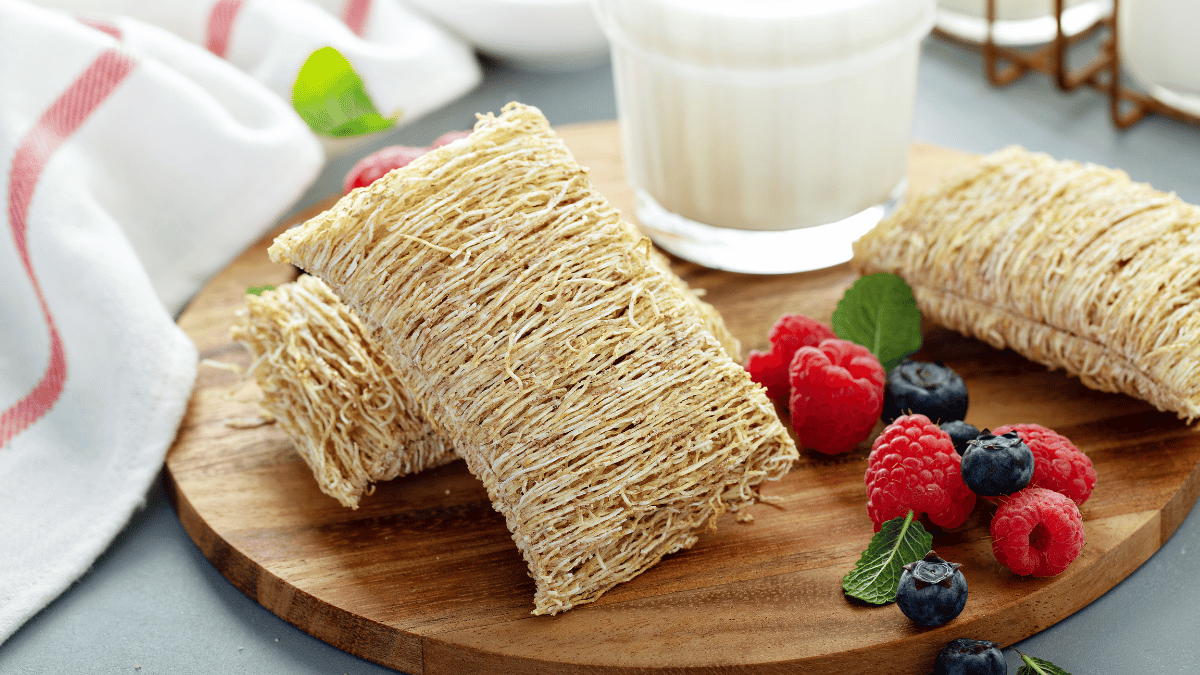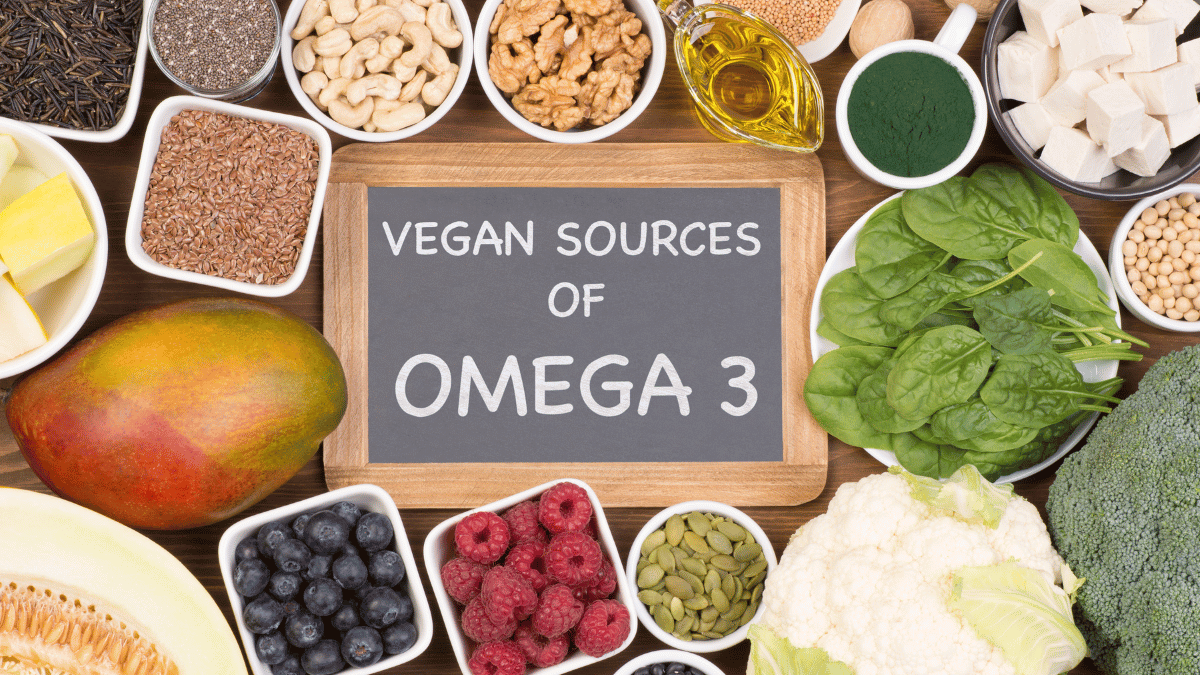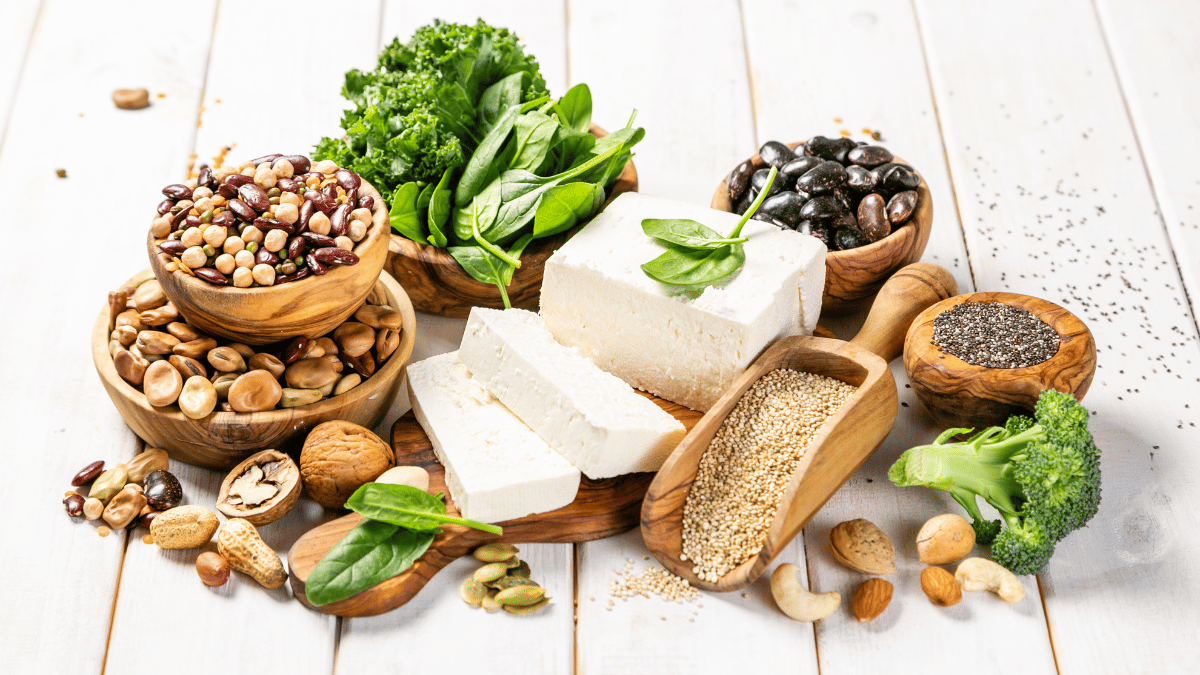As someone who recently transitioned to veganism, I understand the challenges and questions that can arise when making such a significant change. One of the most crucial aspects of embracing a vegan lifestyle is ensuring that you maintain a well-rounded diet to meet all your nutritional needs.
A balanced vegan diet, like any other diet, should provide all the essential nutrients your body requires for optimal health. It’s essential to understand the key nutrients you should be paying close attention to as a vegan, as some may be harder to obtain from plant-based sources.
In this guide, we’ll explore vital nutrients such as vitamin B12, iron, omega-3, calcium, and vitamin D, among others. We’ll discuss their roles in the body, plant-based sources, and how to ensure you’re getting enough of each nutrient.
So, let’s embark on this journey together and learn how to thrive on a vegan diet while ensuring we’re meeting all our nutritional needs.
Vitamin B12

A vital nutrient to consider on a vegan diet is vitamin B12. This water-soluble vitamin plays a crucial role in many bodily functions, including red blood cell formation, DNA synthesis, and maintaining proper nerve function. A deficiency in vitamin B12 can lead to anaemia, fatigue, weakness, and even neurological issues if left unchecked.
The role of vitamin B12 in the body
Vitamin B12 works in tandem with other B vitamins, such as folic acid, to produce healthy red blood cells that transport oxygen throughout your body. It also helps maintain the myelin sheath, a protective covering around nerve cells that ensures proper signal transmission. In addition, vitamin B12 plays a role in converting homocysteine, an amino acid, into methionine, which is essential for DNA synthesis and maintaining healthy cell division.
Sources of vitamin B12 for vegans
As vitamin B12 is primarily found in animal products, it can be a challenge for vegans to obtain sufficient amounts through diet alone. However, there are still options available to ensure you’re getting enough B12:
- Fortified foods
Many plant-based foods are fortified with vitamin B12, making them an excellent choice for vegans. Some examples include breakfast cereals, plant-based milk, vegan spreads, and nutritional yeast. Be sure to check the labels to verify that the product contains B12 and to determine the amount provided per serving.
- Supplements
Another reliable way to ensure you’re getting enough vitamin B12 is by taking a supplement. Vegan-friendly B12 supplements are widely available and come in various forms, such as tablets, capsules, and even sprays.
B12 recommended daily intake
The recommended daily intake of vitamin B12 for adults according to the NHS is around 1.5 micrograms (mcg) per day. However, a number of prominent plant-based diet advocates such as physician Dr Michael Greger, suggest a higher intake for vegans of at least 50 micrograms (mcg) per day to ensure adequate levels are maintained.
Signs of B12 deficiency
Signs of B12 deficiency can be subtle and may not appear until the deficiency has become severe. Symptoms may include fatigue, weakness, pale skin, shortness of breath, dizziness, and tingling sensations in the hands and feet. If you suspect a B12 deficiency, it’s crucial to consult with a healthcare professional to receive appropriate testing and treatment.
By incorporating fortified foods and supplements into your diet, you can ensure you’re meeting your vitamin B12 needs. If you want to find out more about B12 on a vegan diet check out our essential guide to vitamin B12.
Iron

Iron is another essential nutrient to pay close attention to on a vegan diet. This mineral is vital for producing haemoglobin. It also plays a role in immune function, cognitive development, and energy production.
The role of iron in the body
Iron is a critical component of haemoglobin, which is responsible for carrying oxygen from the lungs to the rest of the body. It also contributes to the production of myoglobin, a protein found in muscles that stores and releases oxygen as needed during physical activity. Additionally, iron is involved in various metabolic processes, such as the synthesis of DNA and the production of energy from food.
Differences between heme and non-heme iron
There are two types of dietary iron: heme and non-heme iron. Heme iron is found in animal products and is more easily absorbed by the body. Non-heme iron, found in plant-based sources, is less efficiently absorbed. As a vegan, it’s crucial to consume sufficient non-heme iron to meet your needs.
Plant-based sources of iron
- Leafy greens
Dark leafy greens, such as spinach, kale, and swiss chard, are excellent sources of non-heme iron. Incorporate these nutritious greens into your meals or add to a smoothie to boost your iron intake.
- Legumes
Beans, lentils, and chickpeas are not only packed with protein but also contain significant amounts of iron. They can be easily added to soups, stews, curries, salads, and other dishes.
- Nuts and seeds
Nuts, such as almonds and cashews, as well as seeds, including pumpkin, sunflower, and sesame seeds, provide a good source of iron. Add them to your meals, blend up in a smoothie or enjoy them as a snack for an iron boost.
Enhancing iron absorption
To increase the absorption of non-heme iron, pair it with vitamin C-rich foods, such as citrus fruits, bell peppers, strawberries, and tomatoes.
Tannins, found in tea and coffee, and calcium can inhibit iron absorption. To maximise iron absorption, avoid consuming these items around the same time as iron-rich foods.
Iron recommended daily intake
The recommended daily intake of iron varies by age and sex. Adult men typically need 9 mg/day, while women require 15 mg/day until menopause, after which their requirement drops to 9 mg/day. Pregnant women need 27 mg/day.
Signs of iron deficiency
Signs of iron deficiency may include fatigue, pale skin, dizziness, and difficulty concentrating. If you suspect an iron deficiency, consult a healthcare professional for proper diagnosis and treatment.
By incorporating iron-rich plant-based foods into your diet and employing strategies to enhance absorption, you can meet your iron needs and maintain a healthy, balanced vegan lifestyle.
Omega-3

Omega-3 fatty acids, aka omega-3s, are essential fats that play a crucial role in maintaining overall health. They are particularly important for brain function, heart health, and reducing inflammation. As the body cannot produce these fats, it’s vital to obtain them through dietary sources.
The role of omega-3 fatty acids in the body
Omega-3 fatty acids, particularly EPA (eicosapentaenoic acid) and DHA (docosahexaenoic acid), are crucial for brain health, cognitive function, and nervous system development. They also contribute to maintaining a healthy cardiovascular system by reducing inflammation, lowering blood pressure, and decreasing the risk of heart disease. Omega-3s also play a role in supporting immune function and promoting healthy skin and joints.
Plant-based sources of omega-3s
There are several plant-based sources of ALA (alpha-linolenic acid), a precursor to EPA and DHA. The body can convert ALA into EPA and DHA, albeit at a lower efficiency.
- Flaxseeds
Ground flaxseeds are an excellent source of ALA. Add them to your smoothies, porridge, granola or baked goods for an omega-3 boost.
- Chia seeds
Chia seeds are another excellent source of ALA. They can be used to make chia pudding, sprinkled on yoghurt, added to granola or smoothies.
- Walnuts
Rich in ALA, walnuts are a tasty and convenient way to increase your omega-3 intake. Enjoy them as a snack or add them to salads and baked goods.
- Algae-based supplements
Vegan-friendly algae-based supplements are a direct source of EPA and DHA, bypassing the need for conversion from ALA. If you’re concerned about meeting your omega-3 requirements, consider adding an algae-derived supplement to your diet.
Omega-3 recommended daily intake
There is no specific recommended intake for omega-3s in the UK. However, most healthcare organisations suggest to aim for at least 500 mg per day of DHA and EPA for adults. For ALA, if you are following a well planned plant based diet and including ALA rich sources such as those mentioned above you should be able to get all the ALA required by your body.
Signs of omega-3 deficiency
Signs of omega-3 deficiency may include dry skin, brittle nails, difficulty concentrating, and joint pain. If you suspect a deficiency, consult a healthcare professional for guidance on supplementation and dietary adjustments.
By incorporating plant-based sources of omega-3 into your diet and considering supplementation when necessary, you can ensure optimal health and well-being on a vegan diet. If you want to read more about omega-3 on a vegan diet check out our essential guide to omega-3 for vegans.
Calcium

Calcium is a crucial mineral for maintaining strong bones and teeth, as well as playing a vital role in nerve function, muscle contraction, and blood clotting. Ensuring adequate calcium intake is important for vegans, as some plant-based sources may be less bioavailable than dairy-based sources.
The role of calcium in the body
Calcium is the most abundant mineral in the human body, with about 99% of it stored in bones and teeth. It provides structural support and is essential for bone growth and maintenance. The remaining 1% of calcium is vital for nerve transmission, muscle function, and blood clotting. Calcium also plays a role in the release of hormones and enzymes that regulate various bodily processes.
Plant-based sources of calcium
- Leafy greens
Dark leafy greens like kale, collard greens, and bok choy are good sources of calcium. Incorporate these nutritious greens into your meals to help meet your calcium needs.
- Fortified plant milk
Many plant-based milks, such as oat, almond and soy milk, are fortified with calcium. Check the labels to ensure that the milk you choose contains an adequate amount of calcium per serving.
- Tofu
Calcium-set tofu, which is made using calcium sulphate as a coagulant, can be an excellent source of calcium. In addition to its calcium content, tofu is a versatile and protein-rich addition to a vegan diet.
- Sesame seeds
Sesame seeds are rich in calcium, making them a great option for boosting your intake. Sprinkle them over salads, stir-fries, or enjoy them in the form of tahini, a sesame seed paste.
Calcium recommended daily intake
For adults, the recommended daily amount is 700 mg. Women who are breastfeeding should aim for 1,250 mg per day.
Signs of calcium deficiency
Signs of calcium deficiency can include muscle cramps, brittle nails, tooth decay, and, in severe cases, bone loss (osteoporosis). If you suspect a calcium deficiency, consult with a healthcare professional for proper diagnosis and treatment.
By incorporating a variety of calcium-rich plant-based foods into your diet, you can ensure you’re meeting your calcium needs and supporting strong bones and overall health.
Vitamin D

Vitamin D is a unique nutrient that functions as both a vitamin and a hormone in the body. It plays a crucial role in maintaining bone health, as well as supporting immune function and regulating inflammation. Obtaining adequate vitamin D can be a challenge for vegans, as dietary sources are limited and the primary source is sun exposure.
The role of vitamin D in the body
Vitamin D is essential for the absorption of calcium and phosphorus, both of which are critical for maintaining strong bones and teeth. It also plays a role in immune system regulation, helping to protect against infections and reduce inflammation. Moreover, vitamin D has been implicated in the prevention of certain chronic diseases, such as heart disease, diabetes, and some forms of cancer.
Sun exposure as a source of vitamin D
Sun exposure is the primary source of vitamin D (you may have heard it referred to as “the sunshine vitamin”) for most people. The body can produce vitamin D when the skin is exposed to ultraviolet B (UVB) rays from sunlight. However, factors such as geography (e.g. you are stuck in not so sunny UK), season, skin type, and the use of sun protection can impact the amount of vitamin D produced. Depending on your location and lifestyle, you may need to rely on supplementation to meet your vitamin D needs.
Vegan vitamin D supplements
Vitamin D supplements come in two forms: D2 (ergocalciferol) and D3 (cholecalciferol). Vitamin D2 is always vegan, as it is derived from yeast or fungi. Vitamin D3 is typically derived from animal sources, such as fish liver oil or lanolin from sheep’s wool. However, vegan-friendly D3 supplements derived from lichen are available. Consult with a healthcare professional to determine the appropriate dosage and form of vitamin D for your specific needs.
Vitamin D recommended daily intake
The recommended daily intake of vitamin D varies by age, sex, and life stage. For most adults, a daily intake of 400 International Units (IU) / 10 micrograms (mcg) is sufficient. Pregnant and breastfeeding women may require higher amounts.
Signs of vitamin D deficiency
Signs of vitamin D deficiency may include fatigue, muscle weakness, bone pain, and frequent infections. In severe cases, deficiency can lead to rickets in children and osteomalacia or osteoporosis in adults. If you suspect a vitamin D deficiency, consult a healthcare professional for proper diagnosis and treatment.
By ensuring adequate sun exposure and considering vegan-friendly vitamin D supplements when necessary, you can support strong bones and overall health on a vegan diet.
Other nutrients to consider
In addition to the key nutrients discussed above, vegans should also be mindful of their intake of zinc, iodine, and vitamin K2. These nutrients are essential for various bodily functions and can be found in a variety of plant-based sources.
Zinc
Zinc is an essential trace mineral that supports immune function, wound healing, and cell division. Plant-based sources of zinc include legumes, nuts, seeds, and whole grains. However, the bioavailability of zinc from these sources may be lower than that from animal-based sources due to the presence of phytates, which can inhibit zinc absorption. To maximise zinc absorption, consider soaking or sprouting beans, grains, and seeds before consumption.
Iodine
Iodine is essential for proper thyroid function and the production of thyroid hormones, which regulate metabolism and growth. Plant-based sources of iodine can be inconsistent, as the iodine content in plants depends on the soil in which they were grown. Seaweed, such as kelp and nori, can be a good source of iodine, but the content may vary widely between products. Fortified plant milks and iodised salt can also help increase iodine intake. If you’re concerned about your iodine levels, consider taking a vegan-friendly iodine supplement.
Vitamin K2
Vitamin K2 is important for bone and heart health, as it helps regulate calcium metabolism in the body. While vitamin K1 is abundant in leafy greens, vitamin K2 is primarily found in animal-derived foods and fermented foods. Natto, a fermented soybean product, is one of the few plant-based sources of vitamin K2. You can also find small amounts in sauerkraut and other fermented vegetables.
If you’re concerned about your vitamin K2 intake, consider taking a vegan-friendly K2 supplement or a vegan multivitamin containing K2. This is one I’ve started taking recently as it includes K2 as well as high strength doses of B12 and D3.
By paying attention to these additional nutrients and incorporating a variety of plant-based sources into your diet, you can ensure that your vegan lifestyle provides all the essential nutrients for optimal health and well-being.
Conclusion
A vegan diet can be a healthy and fulfilling choice when approached with care and attention to nutrient intake. As we’ve discussed throughout this post, it’s important for vegans to be mindful of their consumption of key nutrients, such as vitamin B12, iron, omega-3 fatty acids, calcium, vitamin D, zinc, iodine, and vitamin K2.
By being aware of the nutrients that are more challenging to obtain on a vegan diet, you can make informed choices about the foods you eat and the supplements you may need to consider enjoy the benefits of a vegan lifestyle. While ensuring that your body receives all the essential nutrients it requires for optimal health and well-being.
I’m the founder and editor-in-chief at GetVedgy. As a former meat eater who only recently made a commitment to veganism, I’ve spent a lot of time over the last couple of years researching the subject. It felt like a good idea to share what I’ve learnt and help to answer the questions I’ve had that no doubt many others’ will also have.

